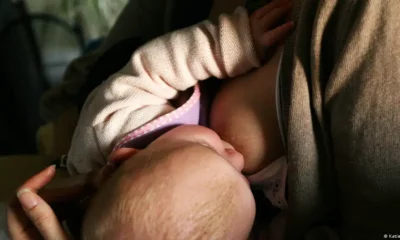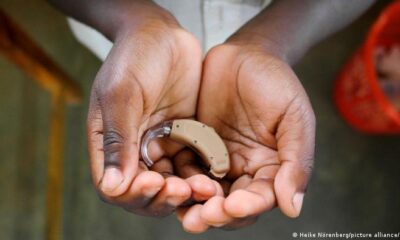PARENTS are being warned to watch out for the tell-tale signs of a deadly scarlet fever infection in the wake of a horror outbreak of the invasive group A Strep disease.
Six children have tragically died from the infection in recent weeks – as more than 800 cases of scarlet fever have been recorded.





The first symptoms can appear to be similar to the flu, including a high temperature, sore throat, and swollen neck glands.
The bacterial infection can be caught by anyone, but most commonly affects children under ten.
And in the recent deadly outbreak, five of the six children that have lost their lives are under 10 years old, the UK Health Security Agency have said.
Following the first signs of symptoms, a red rash appears within 12 to 48 hours, beginning with the chest and tummy before spreading out.
The rash appears as small, raised bumps, and makes the skin feel rough like sandpaper.
Although it doesn’t spread to the face, the infection can cause cheeks to look red and flushed – which may be harder to spot on brown and black skin.
A white coating also often appears on the tongue, which then peels, leaving the tongue red, swollen and bumpy – known as ‘strawberry tongue’.
Complications from scarlet fever are rare, but can include deadly illnesses such as pneumonia and meningitis.
The NHS advises that if diagnosed with scarlet fever, a GP will prescribe antibiotics.
Symptoms can also be relieved by drinking cool fluids, eating soft foods, taking painkillers like paracetamol to bring down a high temperature, and using calamine lotion or antihistamine tablets to ease itching.
However, the health service cautions that you should not give aspirin to children under 16.
URGENT WARNING TO PARENTS
Parents are being warned to watch out for these symptoms after a horror outbreak has seen more than 800 cases of scarlet fever recorded.
Health chiefs are urging all parents to watch out for the symptoms of group A Strep infection and scarlet fever – and to act if they feel their child is deteriorating.
Dr Colin Brown, deputy director at UKHSA, said: “We are seeing a higher number of cases of group A Strep this year than usual.
“The bacteria usually causes a mild infection producing sore throats or scarlet fever that can be easily treated with antibiotics.
“It is important that parents are on the lookout for symptoms and see a doctor as quickly as possible so that their child can be treated and we can stop the infection becoming serious.
“Make sure you talk to a health professional if your child is showing signs of deteriorating after a bout of scarlet fever, a sore throat, or a respiratory infection.”
It comes as the latest UKHSA data shows cases are four times higher than average for this time of the year.
There were 851 cases reported in the week ending November 20 – up from the 186 cases expected.
‘BROKEN INTO A MILLION PIECES’
Six children have tragically died in recent weeks after being diagnosed with Strep A.
The first victim was just six years old after contracting the infection in Surrey.
Within days, three more deaths were recorded in West London, Wales and Buckinghamshire – including four-year-old Muhammad Ibrahim Ali.
His devastated mum, Shabana Kousar, told Bucks Free Press: “The loss is great and nothing will replace that.”
“He was very helpful around the house and quite adventurous, he loved exploring and enjoyed the forest school, his best day was a Monday and said how Monday was the best day of the week.
“He also had a very close bond with his dad. He was his best friend and went everywhere with him. He just wanted to be with him.”
Another of the children to lose their lives in the outbreak was little Hanna Roap, who died on November 25 within 24 hours of becoming ill.
Hanna’s devastated parents say their hearts have been “broken into a million pieces” by the tragedy.
And the dad of a four-year-old girl who is fighting for her life after contracting Strep A has said he is “praying for a miracle”.
Young Camila Rose Burns has been on a ventilator since Monday, and her devastated dad Dean said he has been “living in an absolute nightmare”.
He told Sky News: “When we got [to hospital] Monday, they said she’s the poorliest girl in the whole of England.
“To go from dancing on Friday night with her friends, to a little bit under the weather on Saturday and then a bit more bad on Sunday, she’s basically not the same girl any more. It’s heartbreaking.”
Dean, who lives in Bolton, Greater Manchester, says she began to complain about her chest after a bug went around her school.
She has been unresponsive in Alder Hey Children’s Hospital in critical care since Sunday, and Dean said she is “fighting for her life”.
ACT QUICKLY
He is now urging parents to look out for the signs and act quickly.
He said: “When I look back it still just seemed like a sickness bug, she was really lethargic at times, but her health was improving until she completely changed.
“No family should be going through what we’re going through.
“We just got the Christmas tree out, the naughty elf, the advent calendars with all our names on.
“It’s just wrong. I don’t know what’s going to happen to her, whatever does, she’s our little girl, will always be our little girl.”
A UKHSA spokesman urged parents to call NHS 111 or their GP if they suspect scarlet fever, because early treatment with antibiotics can reduce the risk of complications, including pneumonia.
They added: “If your child has scarlet fever, keep them at home until at least 24 hours after the start of antibiotic treatment to avoid spreading the infection to others.”
When to call 999
The UKHSA spokesman said it is vital that parents trust their instincts, and seek help if their child seems seriously unwell.
You should contact NHS 111 if or your GP if:
- your child is getting worse
- your child is feeding or eating much less than normal
- your child has had a dry nappy for 12 hours or more or shows other signs of dehydration
- your baby is under 3 months and has a temperature of 38C, or is older than 3 months and has a temperature of 39C or higher
- your baby feels hotter than usual when you touch their back or chest, or feels sweaty
- your child is very tired or irritable




Must See
-


Tips
/ 10 months agoTen reasons for Amsterdam
Amsterdam mainly celebrates April 27th in Orange. The king’s birthday is traditionally celebrated with a...
-


Tips
/ 11 months agoTen travel tips for South Korea
A country between high-tech and tradition. A visit to East Asian South Korea is worthwhile...
-


Tips
/ 11 months agoTen reasons for Mecklenburg-West Pomerania
No other federal state has as much water as Mecklenburg-Western Pomerania. Baltic Sea waves wash...













